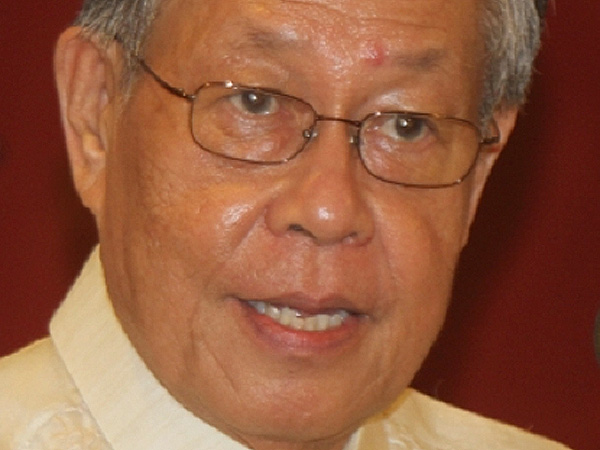Davide vows to defend Constitution with his life
Vowing to stake his life on defending the Constitution, former Chief Justice Hilario Davide Jr. on Thursday joined other framers of the 1987 Constitution to fight moves by President Rodrigo Duterte and his allies in Congress to overhaul it.
Davide said a shift from a unitary to a federal system of government would be a “fatal experiment” that would further push the country to poverty.
“If I have to sign the Constitution again, I will repeat what I have said: This is the Constitution I’m willing to die for,” he said during the commemoration of the Constitution’s 30th anniversary at the Commission on Human Rights office in Quezon City.
“This is the only Constitution in the world, I say the whole world, that is pro-God, procountry, propeople, propoor, prolife, profamily, promarriage, proenvironment… This is the best Constitution,” Davide added.
“Now there is a move to amend it. But I would say this. I would also be willing to die against any move to amend this Constitution,” he continued.
Article continues after this advertisementMr. Duterte and House Speaker Pantaleon Alvarez have vowed to prioritize the overhaul of the charter to allow a federal system of government, lift economic restrictions against foreign ownership, and reimpose death penalty.
Article continues after this advertisementIn a statement read by former Commission on Elections chair Christian Monsod, the framers argued that the Constitution should not be perceived as blocking political and economic progress since this is considered among the “most progressive” in the world, along with those of South Africa and Canada.
“Yet there are proposals to overhaul our Constitution on the ground that it created an ‘imperial Manila’ that stands in the way of the development of other areas, to the detriment of the poor. We beg to disagree,” they said.
If at all, the government failed to fully implement its provisions on social justice and local autonomy, they added.
They urged the administration to heed experts’ recommendations that countries with functioning unitary systems should first try to “reform” rather than “overhaul” the system to “devolve more power and resources” to local government units.
The framers said Congress could amend the Local Government Code and other laws, “without the complexity of a shift to federalism.”
Davide and Monsod were joined at the event by other framers, including Dr. Florangel Rosario Braid, Edmundo Garcia and Commission on Human Rights chair Jose Luis Gascon.
The others who signed the statement were Felicitas Aquino-Arroyo, former Supreme Court Associate Justice Adolfo Azcuna, Bishop Teodoro Bacani, Ricardo Romulo, Jaime Tadeo and Bernardo Villegas. —DONA Z. PAZZIBUGAN
